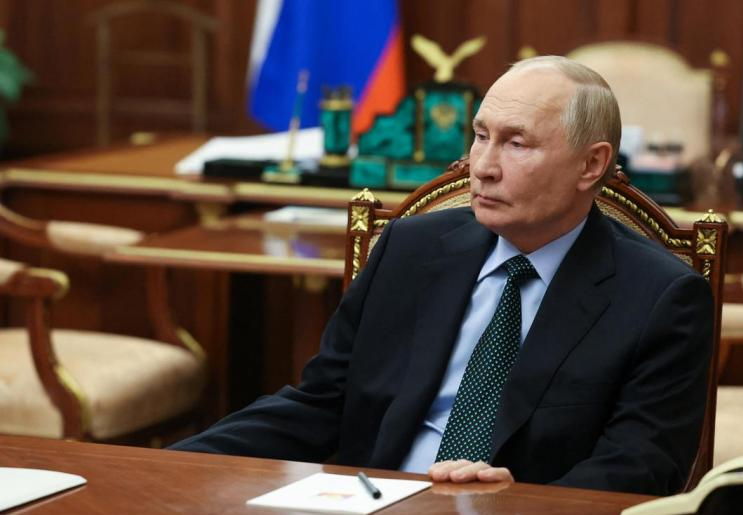
(Washington/Moscow) For the first time, Ukraine has used Western-supplied missiles to strike a Russian border area. On the same day, Russian President Vladimir Putin approved a new nuclear weapons policy, saying that Russia could use nuclear weapons if it was attacked by conventional missiles backed by nuclear weapons states.
Rbc-ukraine News Agency, citing unnamed Ukrainian military officers, reported that the Ukrainian Army used the Army Tactical Missile system (ATACMS) in the early hours of Tuesday (November 19) to strike a military installation in the city of Karachev, Bryansk Oblast in western Russia, and successfully destroyed the target.
Us officials revealed on Sunday that the Biden administration had approved Kiev's use of US long-range weapons against targets in Russia.
Russia's Defense Ministry later confirmed that Ukrainian forces fired six US-made ATACMS long-range missiles into Bryansk Oblast early Tuesday, but said the attack caused no casualties or damage. The Defense Ministry said five of the missiles were intercepted and one was damaged when debris hit a military facility in Bryansk Oblast, sparking a fire.
Ukraine's General staff confirmed that Ukrainian troops attacked an ammunition depot in the city of Karazev, but declined to say what type of missile was used.
Meanwhile, Putin signed a decree on Tuesday approving a new version of Russia's basic state policy on nuclear deterrence. Under the previous version of the policy, introduced in 2020, Russia could use nuclear weapons in the event of a conventional or nuclear attack that threatened the country's survival. The new policy expands the conditions for the use of nuclear weapons, allowing Russia to consider a nuclear strike in the event of a large-scale attack by conventional missiles, drones or other aircraft.
The new policy also states that any aggression against Russia by a non-nuclear state with the participation of a nuclear-armed state will be considered a joint attack against Russia. Mr. Putin's move was apparently intended as a strong warning to Ukraine's Western Allies to think twice about the potential consequences of supplying the country with advanced long-range weapons.
Satellite photos show Russia expanding missile factory
According to the Berlin-based International Institute for Strategic Studies (IISS), Russia is significantly expanding five facilities for the production of solid-fuel missile engines, indicating that Russia is significantly increasing missile production.
The facilities are located in the Altai Republic in Siberia, Rostov in southern Russia, outside Moscow and St. Petersburg, and Perm in western Russia.
Satellite photos taken in July, September and October by Maxar Technologies, an American satellite technology company, show the five facilities cleared of vegetation and a large number of new buildings next to the buildings.
The buildings are solid fuel research and production facilities, according to Hinz, a researcher at the International Institute for Strategic Studies.
Solid-fuel missiles are easier to use and safer than liquid-fuel weapons. They can be launched at any time, are cheaper, last longer in storage, and require less logistical support.
The Ukrainian military said in August that Russia had fired more than 9,600 missiles since the start of the war. Ukrainian officials point out that producing more solid-fuel missiles could help Russia meet its war needs without having to rely on outside suppliers such as North Korea.
The defence ministry did not comment on the IISS findings.
A spokesman for the National Security Council declined to confirm whether the United States was aware of increased Russian missile production, and the Office of the Director of National Intelligence declined to comment.
As the war between Russia and Ukraine entered its 1,000th day Tuesday, Ukrainian Foreign Minister Sergei Sibiga said Monday that U.S. President Joe Biden's permission for Ukraine to use long-range U.S. missiles to strike Russian territory could be a game-changer, and that the farther Ukraine can strike, the shorter the war will be.
German Chancellor Gerhard Schulz said the same day that Germany would provide 4,000 AI-guided drones to Ukraine, but would not supply German-made Taurus long-range cruise missiles, lest the war expand and Germany risk being drawn into the war.
Sweden and Finland on Monday distributed pamphlets and launched new websites to teach people how to prepare for a possible war and deal with various crises.

The European Commission released a package of measures for the automotive industry on Tuesday (December 16th), proposing to relax the requirements related to the "ban on the sale of fuel vehicles" by 2035.
The European Commission released a package of measures for …
Venezuela's Vice President and Oil Minister Rodriguez said …
On December 16 local time, the Ministry of Space Science Ex…
Recently, a highly anticipated phone call between the defen…
Right now, the world's major central banks are standing at …
Recently, according to Xinhua News Agency, the news of a tr…